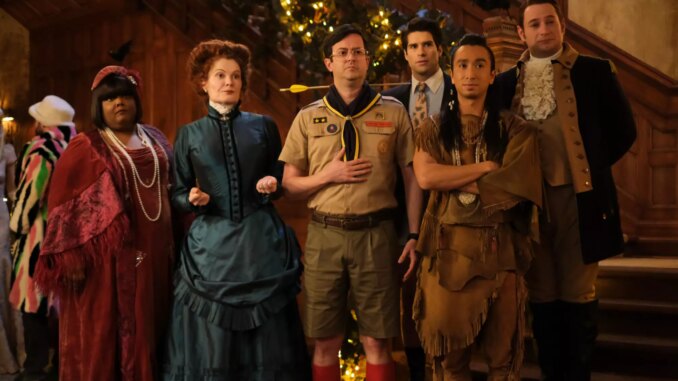
The human fascination with the spectral realm is as old as our fear of the unknown. Ghosts, those elusive echoes of lives once lived, have haunted our stories, our nightmares, and our dreams for millennia. Yet, in the modern cinematic landscape, these ethereal entities are rarely mere wisps of CGI or disembodied moans. They are characters, often vibrant and deeply moving, brought to vivid, unsettling, or even heartwarming life by actors who imbue them with a personality that transcends the veil between worlds. Without the nuanced performances of certain beloved actors, the very concept of the cinematic ghost would lose its profound human resonance, becoming little more than a chilling special effect.
Consider, first and foremost, Patrick Swayze's unforgettable portrayal of Sam Wheat in the 1990 classic Ghost. Before Swayze, movie ghosts were often figures of terror or comic relief, rarely eliciting genuine pathos. Sam Wheat, however, redefined the spectral being. Swayze, known for his charismatic leading man roles, brought a palpable yearning and frustrated passion to Sam. We witness his agony at being unable to comfort his grieving partner, Molly (Demi Moore), his rage at his betrayal, and his desperate struggle to communicate from beyond. His physical performance, even as an invisible entity, conveyed a tangible presence—the way he tried to touch Molly, his frustrated flailing, his determined efforts to manipulate objects. Swayze didn't just play a ghost; he played a man trapped in an unimaginable limbo, still fiercely devoted, still yearning for justice and connection. Without his raw emotional vulnerability and powerful presence, Ghost would have been a mere supernatural thriller, rather than the enduring romantic drama it became, leaving audiences with a profound belief in the enduring power of love beyond death.
Then there are the delightful, droll, and deeply relatable spectral inhabitants of the afterlife, Geena Davis and Alec Baldwin as Barbara and Adam Maitland in Beetlejuice. Unlike Swayze's tormented Sam, the Maitlands are tragically mundane. They’re a sweet, unremarkable couple whose afterlife largely consists of trying to figure out how to be dead. Davis and Baldwin’s performances are a masterclass in comedic helplessness and bewildered decency. Their ghostly predicaments—trying to scare away the new living occupants of their home, navigating the bureaucratic absurdities of the afterlife, and struggling with their limited ghostly powers—are executed with an earnest charm that makes them incredibly endearing. They aren't trying to scare; they're trying to reclaim their peace. Their efforts, often clumsy and comical, are imbued with a gentle humanity that makes them more sympathetic than frightening. They grounded the fantastical, making us believe that if we were to become ghosts, we might be just as lost and bewildered. Without their unassuming grace and comic timing, the film's unique blend of horror and humor wouldn't work, reducing them to mere plot devices rather than the lovable, well-meaning specters we root for.
Finally, the quiet, profound tragedy of Bruce Willis's Dr. Malcolm Crowe in The Sixth Sense stands as a testament to an actor's ability to redefine the very nature of a ghost. The film's iconic twist hinges entirely on Willis's nuanced performance. Throughout the movie, he portrays a compassionate, troubled psychologist, wrestling with his own past failures and dedicated to helping the young Cole Sear. His interactions with Cole are grounded, empathetic, and utterly human. The power of his portrayal lies in his unawareness of his own spectral state. He isn't a ghost in the traditional sense, haunting a place or seeking revenge. He is a soul stuck, still performing his duty, still seeking resolution. Willis’s quiet intensity and understated sorrow build a character that is tragic not because he is dead, but because he doesn't know it, and because he longs for reconciliation with his wife. When the truth is revealed, it's not just a shock; it's an emotional gut punch that recontextualizes every one of his preceding scenes. Without Willis’s subtle, deeply layered performance, the twist would be a gimmick; with it, it transforms the film into a poignant exploration of grief, communication, and unfinished business, making the ghost not a source of fear, but a vessel for profound emotional release.
In conclusion, the cinematic ghost is more than just an effect; it is a complex reflection of our fears, hopes, and anxieties about what lies beyond. Patrick Swayze gave ghosts a yearning heart, demonstrating that love can transcend death. Geena Davis and Alec Baldwin injected them with relatable, bumbling humanity, proving that even in the afterlife, the mundane can be endearing. And Bruce Willis revealed the quiet, unaware tragedy of a soul still searching for peace. These actors, through their transformative performances, didn't just play roles; they elevated the very concept of the spectral, imbuing their characters with a resonance that ensured these ghosts would linger in our collective imagination, forever changed and deepened by their artistry. Without them, the other side would feel a little less vivid, and our understanding of what it means to be a ghost, profoundly diminished.
